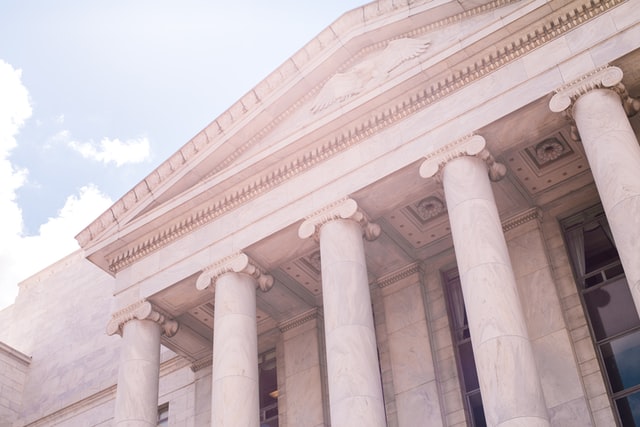
One Big Nail in Coffin of Administrative State?
Recently we reviewed the U.S. Supreme Court case Jarkesy that may end the power of regulatory agencies to act as both prosecutors and judges in matters under their jurisdiction.
Since this is a common feature of regulation, a ruling by the court in favor of plaintiff Jarkesy – which seems likely – would require extensive reform of regulations in at least 30 areas, from environment to investment to consumer protection.
After a major ruling last year in the Sackett case that portended broad reform but was ultimately limited mainly to defining “Waters of the United States” by the Environmental Protection Agency and Army Corps of Engineers, another case raising an even broader issue now may hammer a big nail in the coffin of the administrative state that emerged 150 years ago.
The issue now is the power of regulators to interpret (extend) their authority when their enabling statutes written by legislators are vague, as is generally the case.
Under a 1984 case Chevron v. Natural Resources Defense Council, the court ruled that courts should defer to an agency’s reasonable interpretation of an ambiguous statute. Ergo, the “Chevron deference” doctrine, based on the progressive notion that many regulatory matters are too complex, extensive and evolving to expect legislatures to understand well and legislate precise standards, limits and other provisions.
Instead, they may pass general and aspirational laws that regulators (who are presumed to have expertise) and the experts who advise them should fill in the details as they go.
If a court finds a statute vague in any relevant part, Chevron deference requires it to adopt any reasonable interpretation embraced by the agency the statutes empower. This includes, especially, determining how far the agency’s power extends.
There are at least two fundamental problems with this approach. First, Constitution Article 2 provides that only Congress may pass laws, and allowing regulators and their experts the leeway now practiced violates this non-delegation doctrine.
Second, legislatures are accountable to voters – a fundamental democratic-republic principle – but regulators and their experts are not.
On Jan. 17, the court heard three-and-a half hours of oral argument in Loper Bright Enterprises, et al. v. Gina Raimondo, Secretary of Commerce, et al. and a related case involving Relentless, Inc. v. Raimondo.
Combined, these two cases raise reconsideration of Chevron deference because the National Marine Fisheries Service, part of the Department of Commerce, promulgated a government-run program to monitor for overfishing of herring off New England’s coast. And it requires commercial fishermen to help fund the program.
The two plaintiffs argued that two federal appeals courts erred in upholding the program and fees because Congress did not authorize the agency to establish the program and the costs required to fund the program are unreasonably burdensome to small fishers like them.
Various reports and commentaries have disagreed on the court’s lean on Chevron deference, depending on their interpretation of justices’ questions and comments during argument. But all agree the decision is likely to issue in June.
Although Chevron deference was considered relatively noncontroversial in 1984, and the court has not relied on it in recent years, conservative legal scholars have written critically of it recently.
Three liberal justices now seem disposed to uphold the doctrine, arguing for the expertise of regulators and their staff and essentially ignoring the Constitution and accountability to voters.
Justices Clarence Thomas and Samuel Alito seem disposed to overturn it. Justice Brett Kavanaugh noted Chevron “ushers in shocks to the system … when a new administration comes in” and implements “massive changes” in policy. Justice Neil Gorsuch argued that Chevron virtually always favors government agencies over the “little guy” and that lower courts have had difficulty deciding what Chevron means.
Justice Amy Comey Barrett and Chief Justice John Roberts disagreed on how much effect overturning Chevron would have.
In any event, if Chevron is overturned, it will be a major blow to the modern administrative state.
(This article originally appeared in Nevada Business.)